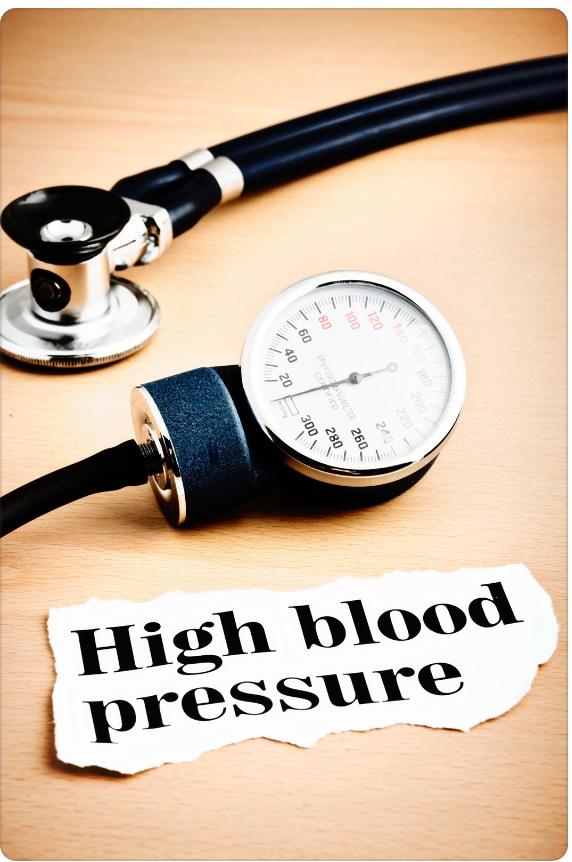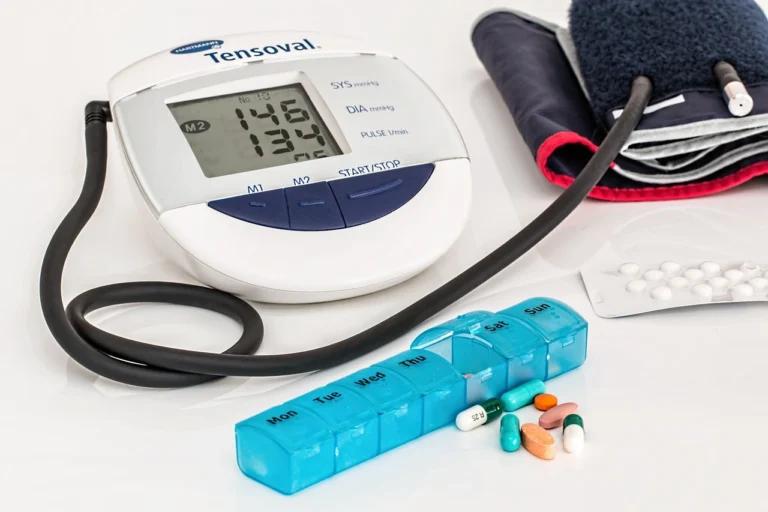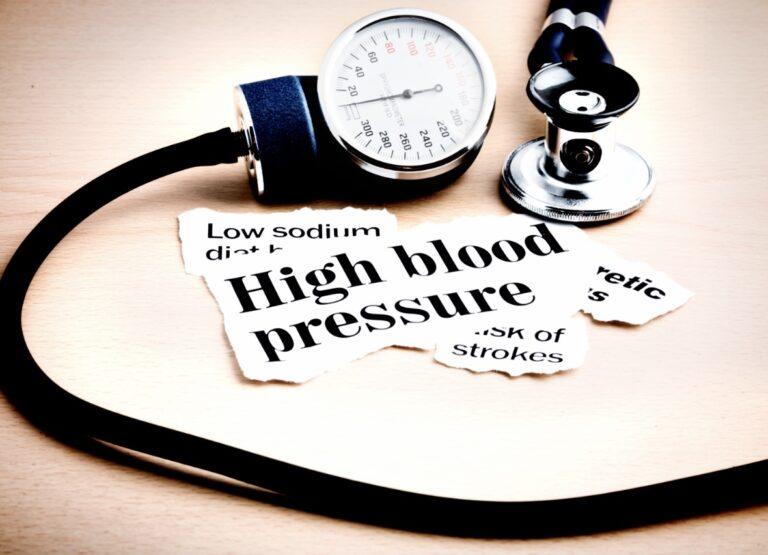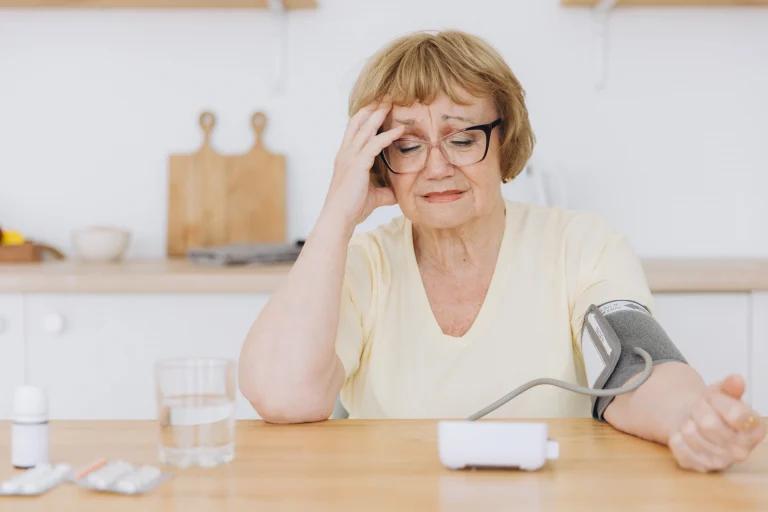What is classed as high blood pressure?
Your blood pressure measures the pressure in your arteries during the active and resting phases of your heartbeat.
Your blood pressure is recorded using two numbers. Your systolic blood pressure (top number) is the force at which your heart pumps blood around your body. Your diastolic blood pressure (bottom number) is the resistance to the blood flow in your blood vessels.
Your blood pressure is measured in millimetres of mercury (mmHg). High blood pressure is measured as 140/90mmHg or higher (or 150/90mmHg or higher if you’re over 80). Normal blood pressure is measured between 90/60mmHg and 120/80mmHg.
Measurements between 120/80mmHg and 140/90mmHg could mean you’re at risk of developing high blood pressure if you do not take steps to keep your blood pressure under control. The only way to know whether you have high blood pressure is to have it measured.
What are the risk factors of high blood pressure?
High blood pressure is usually caused by a variety of reasons, such as poor diet, obesity, lack of exercise, stress, smoking, alcohol or being over 65. Some people are more likely to get it if they have a family history of heart disease or are of African or Caribbean origin.
For some people it can be caused by an underlying health condition such as kidney disease, diabetes or lupus. People who experience sleep deprivation, especially those who are middle-aged also have an increased risk of high blood pressure.
Some people have a condition known as “white coat hypertension“, where their blood pressure rises only because someone is taking their blood pressure and not because they have an underlying medical problem.
If your blood pressure is too high, it puts extra strain on your blood vessels, heart and other organs, such as the brain, kidneys and eyes. Persistent high blood pressure can increase your risk of a number of serious and potentially life-threatening health conditions, such as:
- Heart disease, heart attacks, strokes and heart failure
- Peripheral arterial disease
- Aortic aneurysms
- Kidney disease
- Vascular dementia
Healthy lifestyle changes can sometimes be enough to help reduce your chances of getting high blood pressure or reduce your blood pressure if it’s already high.
What are the symptoms of high blood pressure?
Even if your blood pressure is high, you may not have any symptoms. It is often called the “silent killer.” The first symptom of untreated high blood pressure may be a heart attack, stroke, or kidney damage.
If you have blood pressure readings of 180/120 or higher, you may have symptoms such as chest pain, shortness of breath, numbness/weakness or problems with your vision or speaking. This is an emergency, call 999.
What should you do for high blood pressure?
Reducing hypertension will prevent heart attack, stroke and kidney damage, as well as other health problems. Not everyone with high blood pressure will need medication. Some people will just need to make lifestyle changes and live a more healthy lifestyle. These include:
- Regular physical activity
- Eating a healthy diet with vegetables, fruits, whole grains, low-fat dairy, poultry, fish, and chicken. Avoid foods high in saturated fat as these will increase your cholesterol level, which is another risk factor for cardiovascular disease
- Lose weight if you are overweight
- Limit stress
- Drink less alcohol
- Better quality sleep
- Cut down on caffeine
- Stop smoking
Sometimes, making lifestyle changes alone will not be enough to reduce your blood pressure. Your doctor may recommend taking one or more medicines. Common blood pressure medications include:
- ACE inhibitors – enalapril, lisinopril, ramipril
- Angiotensin-2 receptor blockers (ARBs) – candesartan, irbesartan, losartan
- Calcium channel blockers – amlodipine, felodipine or diltiazem and verapamil
- Diuretics – indapamide and bendroflumethiazide
- Beta-blockers – atenolol and bisoprolol
- Alpha-blockers – doxazosin
- Other diuretics – amiloride, spironolactone
Your treatment will depend on how high your blood pressure is, your age and your ethnicity. Consult a healthcare professional immediately if you have any side effects from your medication.
Your doctor may recommend an easy-to-use home blood pressure monitor. Follow the directions with the device to ensure you are using it correctly and keep a record of your blood pressure numbers. It’s a good idea to take your blood pressure monitor and your readings to your GP.
What is classed as low blood pressure?
Low blood pressure is a reading of 90/60mmHg or less. It doesn’t always cause symptoms, but you may need treatment if it does.
What are the causes of low blood pressure?
Conditions that can lead to low blood pressure include:
- An extremely low heart rate (bradycardia)
- Heart valve problems, heart attack and heart failure
- Endocrine problems – parathyroid disease, adrenal insufficiency (Addison’s disease), low blood sugar (hypoglycemia) and in some cases, diabetes can trigger low blood pressure
- It is important to know that your blood pressure can also vary depending on the time of day. It gradually increases throughout the day
- What you’re doing and how you’re feeling
- You may be fit and healthy
- Family history of low blood pressure
- Getting older
- Being pregnant
- Other medication
What are the symptoms of low blood pressure?
Usually, someone suffering from low blood pressure will experience the following:
- Light-headedness or dizziness
- Blurred vision
- Weakness
- Confusion
- Feeling faint or sick
You may have postural hypotension, where you get the above symptoms when you stand up or suddenly change position.
What should you do for low blood pressure?
If a cause can be found your GP will recommend treatment to ease your symptoms. They may suggest:
- Changing your medication or reducing your dose
- Wearing support stockings – this can help improve your circulation and increase blood pressure
Medication to increase blood pressure is rarely needed because simple lifestyle changes or treating the underlying cause is usually effective.
- When getting up from sitting or lying down – move slowly
- Eat small, regular meals – lying down or sitting still for a while after eating may also help
- Increase the amount of water you drink
If you’re having symptoms of either high or low blood pressure regularly, then make sure you see your GP for a blood pressure check. If you’re between 40 to 74 years old, you should have your blood pressure checked at least once every five years as part of the NHS Health Check.
Sources
Medical Disclaimer
NowPatient has taken all reasonable steps to ensure that all material is factually accurate, complete, and current. However, the knowledge and experience of a qualified healthcare professional should always be sought after instead of using the information on this page. Before taking any drug, you should always speak to your doctor or another qualified healthcare provider.
The information provided here about medications is subject to change and is not meant to include all uses, precautions, warnings, directions, drug interactions, allergic reactions, or negative effects. The absence of warnings or other information for a particular medication does not imply that the medication or medication combination is appropriate for all patients or for all possible purposes.









